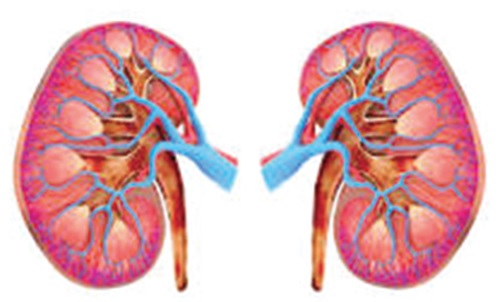
Funding kidney disease treatment (2)
In the face of all the data on both the prevalence and cost of kidney disease and its treatment, the fact remains that treatment is not cheap and must be paid for.
Advertisement
Short-term measures
I believe the immediate removal of import duty on dialysis machines and consumables will go a long way to stabilise the cost of dialysis treatment, reducing it by as much as 20-25 per cent.
Further, the state must collaborate with local pharmaceutical companies for the manufacturing of acid concentrate, which is an important component of dialysis treatment and will help control costs.
The Bank Hospital in Accra, for instance, manufactures its own acid concentrate.
Education, preventive health care
Last week, I indicated that kidney failure was becoming quite a common global phenomenon, principally as a result of lifestyle issues.
This includes uncontrolled blood pressure, diabetes and consumption of alcohol, as well as all manner of aphrodisiacs.
I believe that we do not do enough public education and/or take sufficient measures to help prevent diseases in the first place.
Given our less than robust health system, we cannot afford the luxury of finding resources to treat preventable diseases and must be very deliberate and persistent about public education.
Through our school system and other forms of public messaging, including the media, we must educate on the risk factors leading to hypertension, diabetes, etc., not just because they can lead to kidney disease, but also that they can lead to stroke and other serious ailments.
Public policy can also be a big tool to help control disease, especially with high taxes on products with harmful health implications, such as sugar, alcohol or cigarettes.
For instance, according to the World Health Organisation (WHO), at least 85 countries were implementing some type of tax on Sugar-Sweetened Beverages (SBB) as of last year.
Such taxes can be a powerful tool to promote health because they impact consumption, and therefore help save lives and prevent disease.
Personally, I do cringe when I see the varieties and amounts of imported ‘energy drinks’ and other high-sugar drinks on the market.
The state, through its agencies, such as, the NHIA, Food and Drugs Authority (FDA), the Ghana Standards Authority (GSA) the Ministry of Health (MoH) and the Ghana Health Service (GHS) all have a role to play in ensuring that the various alcoholic beverages on the market, including all manner of ‘bitters’ touted as aphrodisiacs that many young men in particular flock to, conform to the highest standards.
The NHIS cover should also include routine medical check-up for all registered members over 40 years and the general population under 40 years but with pre-existing health condition as standard.
This will help save the NHIA some costs as illnesses will be picked up early and treated, hence, reducing cost associated with patient hospitalisation.
Organ donor, transplantation policy
Sadly, many citizens die in road and other accidents in this country each year.
Without intending to sound morbid, renal failure patients abound, who could do with a kidney of such victims.
Especially in our part of the world, we view death from a rather morbid prism and would prefer not to discuss anything about it ahead of time.
But as Shakespeare reminds us in his play ‘Julius Caesar’, ‘death, a necessary end, will come when it will come.’
I believe with a well-thought-out government-led organ donation and transplantation policy, drive and public education, attitudes may change to make people comfortable with becoming organ donors and signing up for same while alive.
Equally, we must build and enhance the medical capability in organ donation surgeries within our Ghanaian medical systems, both in terms of equipment and skills.
Finally, we must consider allowing or encouraging citizens on the NHIS who have the means to scale up their premiums to include dialysis treatment or other expensive medical interventions should the need arise.
I would suggest having a standard NHIS cover for what it covers today, Silver to cover Dialysis and some Cancers and Gold membership to cover all other illness with an accordingly adjusted premiums in order to sustain the NHIS.
While this would admittedly be of little comfort to many of our citizens who earn very little or nothing, I strongly believe at least a decent premium will be affordable to a considerable number of people and therefore save them from great worry should that time arrive.
The conversation on the scourge of renal failure and its attendant issues cannot, and must not, be ignored.
Rodney Nkrumah-Boateng,
E-mail: [email protected]



